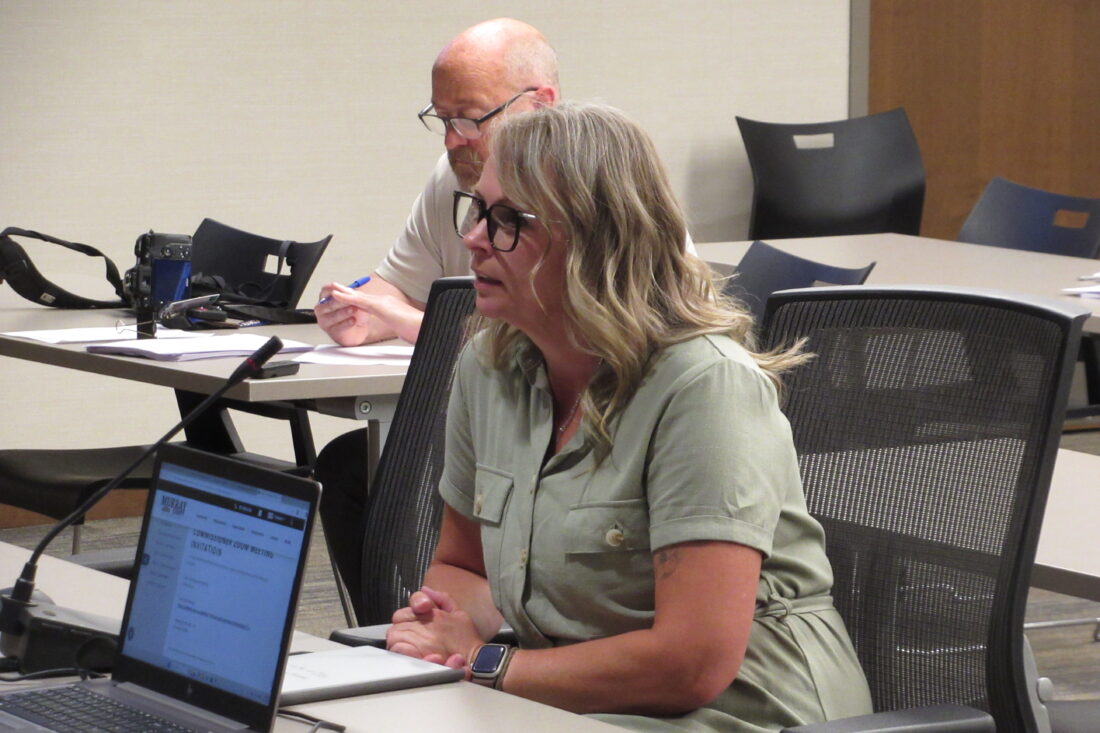Federal cuts eliminates Extension nutrition program
60 jobs cut statewide, 1 in Lyon County

Ann Orren, the new southwest regional director for the University of Minnesota Extension, introduced herself to the Lyon County Board on Tuesday. The impact of federal funding cuts to the SNAP-Ed nutrition education program was part of Orren’s update to county commissioners.
MARSHALL — Federal funding cuts will end a nutrition education program for low-income families, Lyon County Commissioners learned this week.
Ann Orren, the new southwest regional director for the University of Minnesota Extension, talked about cuts to the Extension’s SNAP-Ed program during an update to the county board on Tuesday.
SNAP-Ed is an educational program geared toward people in the Supplemental Nutrition Assistance Program (SNAP). Funding for SNAP-Ed was eliminated in the recent Trump administration budget bill.
Orren said the Extension is facing layoffs, due to the federal funding cuts.
“I think the county got notification that the SNAP-Ed program will be sunsetted as of September 30. So, about 60 of our staff were given letters of termination. Their last week will be August 22,” Orren said. Those 60 layoffs would be happening across Minnesota. “In Lyon County, it was a half-time person who was doing that work.”
In addition to challenges like funding cuts, Orren said she has been working to build relationships with Extension staff and the communities in the 10-county southwest Extension region. Orren was hired as southwest regional director this spring, after previously serving as public health supervisor at Southwest Health and Human Services.
“I started on March 24, so I’m about three months in,” Orren told commissioners. “With 10 counties, 10 county administrators, all the county board meetings and county board members, and then all the staff,” she said, there was a lot to do.
Orren said staff at the Marshall Extension office also were working with summer programming, as well as getting ready for the county fair. “I know they’ve been busy,” she said.
“Do you see one county, or a couple counties that are doing more than other counties?” asked Commissioner Gary Crowley.
“The nice thing about Extension and your educators is they all have different passions. And so whatever your passion is as an educator . . . you can lean into what you know most about,” Orren said. “So I think I wouldn’t say better or worse, but there’s different varieties based on the skills and experience of the staff that are working there.”
Orren said it’s been exciting making the transition from SWHHS to the Extension.
“I’m getting to know the counties, and the (Extension) staff,” she said. In some ways, her former position in public health has been helpful. “One of the benefits is, I’ve already worked with five of the counties in the region,” she said.




